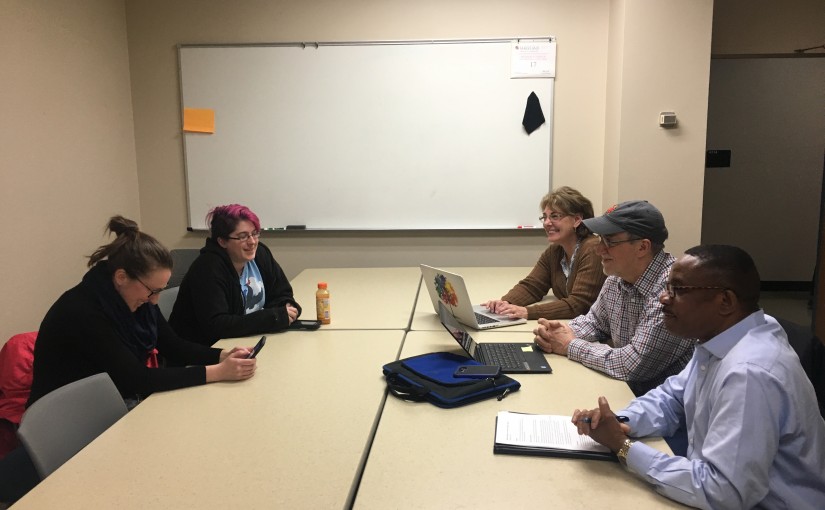Members of the President’s Commission on Disability Issues are developing a disability studies minor for University of Maryland undergraduate students to be launched in fall 2019.
This university has more than 70 undergraduate and graduate courses that cover various aspects of this field.
While the commission — whose 30 members advise the administration on disability issues — does not anticipate the school would have to create many new classes for the minor, more sections of the already existing introductory course may have to be added to meet demand, said JoEllen Barnhart, who serves on the commission.
Peter Leone, who teaches “Disability: From Stigma and Sideshow to Mainstream and Main Street” and also serves on the commission, said the waitlist for this course often equals the number of students who can enroll in it.
“We have the existing resources, we have the expertise on our campus, we have wonderful opportunities and great leadership,” said kinesiology doctoral student Stephanie Cork, who serves on the commission. “So it’s really a question of, ‘Are we all on board? OK, let’s do this.'”
[Read more: UMD hosts panel on rights and accessibility for individuals with disabilities]
In 2014, Leone and special education lecturer Carolyn Fink received a $15,000 grant from the Office of Diversity and Inclusion to establish a similar minor, but Leone said the effort “died on the vine” when there were funding concerns.
When the commission became involved in the development process last fall, the minor gained support from departments across the campus. Faculty and staff representatives from a number of academic and non-academic departments sit on the commission’s committee for the minor, which includes faculty in the education college, the Institute of Applied Agriculture and Facilities Management, along with two graduate students.
Leonard Azonobi, who works for Facilities Management and sits on the commission, said creating a disability studies minor would give a home to these courses — which currently fall in departments including education, engineering and kinesiology — and provide students who take them with a certification that could improve their employability.
For example, freshman family science and Spanish major Tristan Henkel said the program would help her pursue a career in family law. Many of these lawyers she has met frequently work with children who have disabilities.
When she was a sophomore in high school, Henkel tutored a student who had autism. She said this experience showed her how students with disabilities struggle “in the context of a school system based on neurotypical students.”
“It’s important to have a cultural change, and to acknowledge officially that this is something that we think about,” she said.
Barnhart, an oral communication lecturer, said this minor would also help students understand the “dynamic” of working with individuals who have disabilities.
“Contemporary society is moving in a direction that is more inclusive,” she said. “Students today are going to be working side-by-side in some capacity with individuals with disabilities.”
Some universities, including the University of Delaware and the University of Illinois at Chicago, have already created disability studies programs. At Syracuse University, students can earn a minor, a masters degree and a doctoral degree in disability studies.
[Read more: As UMD marks Disability Awareness Month, advocates say city and campus could do more]
Barnhart said while establishing a minor would be one “giant leap forward,” the commission’s ultimate goal is to develop a full bachelor of arts program with a “stairway” to earn a doctoral degree.
“We’re way behind the times here, and we recognize that,” she said.
Junior biochemistry major Adaobi Ahanotu, whose older brother has autism, said this minor would make the campus climate “much more accommodating and welcoming for people with disabilities” and would impact students even if they chose not to take it.
“A lot of people don’t really understand that a person with a disability is just somebody seeing or doing things in a different way,” Ahanotu said.



